Europe is no longer a role model when it comes to refugee protection (anymore)
October 26, 2017 / Natalia Huser, Christof Meier
The Zurich Migration Conference 2017 was dedicated to international refugee protection and the question of how it can be rethought in view of the current problems. Both global and European approaches and ideas were outlined, presented and discussed. The information on the city-to-city project partnership with the "city of first flight" tyre in Lebanon or on Zurich's participation in the "Solidarity Cities" initiative of Eurocities had a direct connection to Zurich.
Overall, the invited experts considered the situation in Europe to be blocked, not very innovative and no longer appropriate for refugees. Suggestions and clues arise more from historical references – for example, Phoenician trading cities or later the Hanseatic cities offered refugees and other immigrants not only protection, but also perspectives through a liberal economic order – or from a view of regions outside Europe. Interesting models of interstate cooperation can be found today in Latin America and innovative accents in the reception of refugees in African countries.
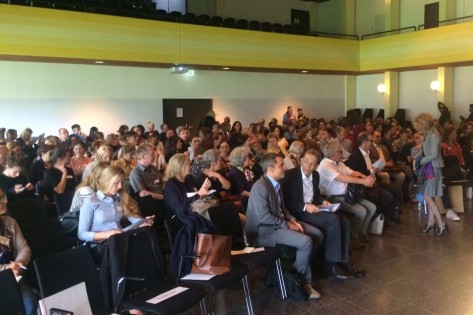
On 7 September 2017, 260 experts from the field of migration and integration took part in the 15th Zurich Migration Conference, which was organised as every year by the municipal integration promotion and the Zurich specialist organisation AOZ. Daniel Endres, Director of Comprehensive Responses at UNHCR, Gerald Knaus, Chairman of the European Stability Initiative (ESI) and Philipp Aerni, Director of the Center for Corporate Responsibility and Sustainability (CCRS) at the University of Zurich, gave specialist and input presentations. City Councillor Raphael Golta welcomed the participants, and Zurich Mayor Corine Mauch presented what the city of Zurich is doing in concrete terms.
This year's "carte blanche" for a guest went to illustrator Olivier Kugler. Over a period of four years, he met, interviewed and drew Syrian refugees on behalf of Doctors Without Borders and opened up the view of individual people and their fates at the conference with examples from his publication "Escaped War". Despite all the obstacles, the refugees have complained little to him. Her wish was to find a job and to be able to continue her life in peace and freedom.
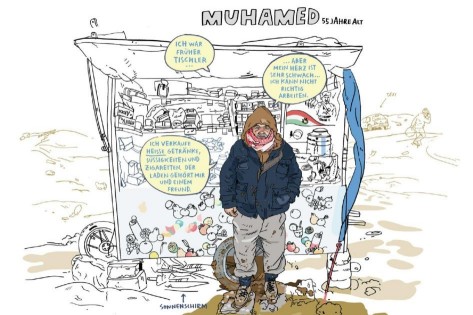
The New York Declaration for Refugees and Migrants
Protracted and renewed conflicts and the associated displacement of millions of people led the international community to rethink refugee protection. According to Daniel Endres, the "New York Declaration for Refugees" adopted in 2016 is the basis for a paradigm shift in global refugee and migration policy. It is a document based on the 1951 Geneva Convention and therefore contains core elements that are legally binding on the 193 member states of the United Nations General Assembly.
The comprehensive framework plan regulates the refugee measures and pursues four objectives: to reduce the pressure on the affected host countries, to promote the autonomy of refugees, to expand resettlements to third countries and to support voluntary return to the country of origin. The provisions are based on a whole-of-society approach that calls for political will at the highest level, but also requires a close connection between experienced and new actors from the private sector, finance, non-governmental organisations, civil society and research. While the New York Declaration has so far met with little resonance in Europe, according to Daniel Endres, various agreements have already been concluded in individual regions of Latin America and East Africa and more refugee-friendly measures have been initiated and implemented.
Europe should serve as a role model
Several published studies and reports show that humanitarian aid in Europe is too sluggish and not very efficient. Asylum seekers often have to remain in a state of uncertainty for months. Gerald Knaus, head of the so-called "Merkel Plan" of 2015, a refugee agreement between the EU and Turkey, wants to defend humanitarian principles and the right to asylum with his "Rome Plan" as well as reduce the immigration of refugees and migrants with fast asylum procedures and the regulated admission of people from third countries and make it safer for those affected.
Gerald Klaus is constantly developing his ideas and concepts in direct exchange with refugees, administrations and governments. He is looking for pragmatic solutions for a humane European border and asylum policy and calls on Europe to serve as a role model. He remains optimistic, although he currently sees above all a debate that is characterized by skepticism and rejection. In many cases, it is party-ideological or even xenophobic arguments that prevent real progress. Ultimately, there is no lack of money or conventions, but of political will.
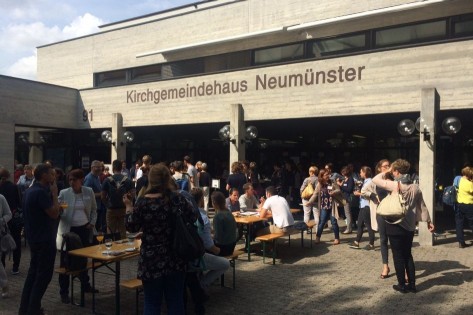
Economic upswing through refugees (in new cities)
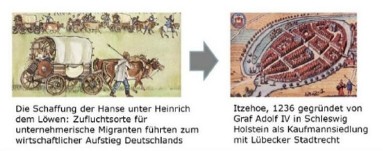
The question of why refugees risk so much to come to Europe can be answered not only by the hardship and threat in the country of origin but also by the will to work. According to Philipp Aerni, "economic refugees" are often people who no longer see any future opportunities in the de facto feudalistic structures in their countries and see emigration as the only way to escape the economic misery. Many of them have great economic potential, but this is lying fallow and being wasted. History shows that it can be used for the benefit of all. For example, Phoenician trading cities have developed very differently from Roman garrison towns and the rise of the Hanseatic cities in the Middle Ages can be explained in particular by liberal economic orders and the influx of refugees and migrants.
As the "Qualified Industrial Zones" in Jordan and Egypt or the economic growth of Istanbul show, according to Philipp Aerni, liberal framework conditions are still promising approaches that can be used to show refugees a future – especially in the vicinity of their home countries. Concrete ideas are moving in the direction of privately managed economic zones in affected countries, which would be more sustainable in the long term than bilateral agreements on the return of refugees. However, implementation requires knowledge of history and political courage, says Aerni.
Cities as international actors
Even if – or precisely because – Switzerland is an "island of the lucky souls", as the former German ambassador to Switzerland Otto Lampe once put it, for Mayor Corine Mauch the asylum policy commitment of the city of Zurich on a local and international level is indispensable. The European initiative "Solidarity Cities" is a good example of this, demonstrating exchange, cooperation and solidarity. Specifically, in this context, Zurich recently (together with Amsterdam) supported the Greek city of Thessaloniki in the planning of informal educational opportunities for unaccompanied, underage refugees.
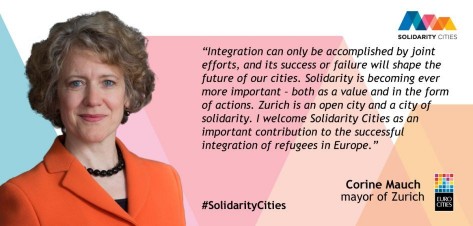
The city remains committed to its support for so-called "first escape cities" launched in 2015, which is now entering its second phase. As part of a project partnership, Zurich will support the southern Lebanese port city of Tyros "from city to city", in close cooperation with UN Habitat. The cooperation pursues a sustainable, long-term approach that takes into account the needs of both the local population and the refugees living there.
The view to the outside is worthwhile
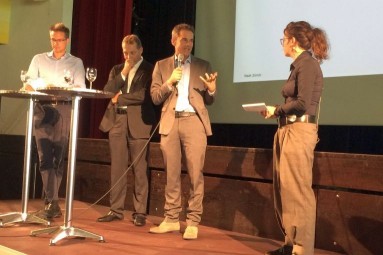
In a joint discussion, the speakers at the conference agreed that European refugee protection must be redesigned and that this requires strategies for society as a whole. In other words, less "silo thinking" and more interweaving of knowledge and experience, fewer top-down processes, instead more direct cooperation with those involved and affected, especially with the cities. If these did not exist, well-thought-out and politically desired plans would also be doomed to failure.
It is also of general importance that refugee movements must not only be viewed from a "humanitarian" point of view, but that refugees must always be understood as part of society in which they find protection. Their local integration is central and of lasting importance – and it requires the possibility of a professional and economic perspective for the benefit of all. The fact that this should not only be the case in Europe is due to the fact that the majority of all refugees remain "in the closer region". That is why it is also important to rethink the large refugee camps, and it is gratifying that countries such as Djibouti, Ethiopia or Uganda are showing exciting, creative and sometimes promising changes in this regard – it is definitely not the European states that are innovative and rely on the potential of refugees. It is therefore worth looking outwards, and the positive examples should serve as a stimulus for Europe to make progress itself.